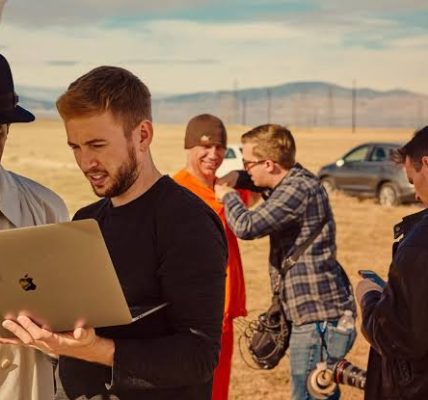In the realm of filmmaking, where storytelling often thrives on imagination and fiction, there exists a unique and powerful genre that puts truth at its very core – documentary filmmaking. These films are not scripted, nor are the events carefully staged. Instead, documentary filmmakers embark on a journey to capture reality as it unfolds, bringing it to the big screen for audiences to witness. In this article, we will delve into the art of documentary filmmaking and the profound impact it has on our understanding of the world.
1. The Quest for Truth
At the heart of documentary filmmaking lies a simple yet profound quest: the search for truth. Documentaries offer viewers an unfiltered and unbiased glimpse into the real world. They explore issues, events, and people, often shedding light on lesser-known stories or challenging widely held beliefs.
Unlike fictional films, documentaries do not rely on actors, scripts, or elaborate sets. Instead, they rely on real-life subjects, interviews, archival footage, and on-the-ground reporting to tell their stories. This authenticity is what sets them apart, making them a potent tool for understanding the world around us.
2. Various Styles and Approaches
Documentary filmmaking is a diverse field with various styles and approaches. Some documentaries adopt a fly-on-the-wall style, allowing the events to unfold naturally without any intervention. This approach is commonly seen in observational documentaries, where the filmmaker’s presence is minimal.
Other documentaries take a more participatory approach, where the filmmaker becomes an active part of the narrative. They may engage with their subjects, ask questions, and interact with the environment to capture a more personal perspective. This approach is often used in character-driven documentaries.
3. The Power of Cinematic Storytelling
Despite their commitment to truth, documentaries are not mere recordings of events. They are masterpieces of cinematic storytelling. Filmmakers use their artistic skills to craft compelling narratives, weaving together interviews, footage, and visuals to create a cohesive and impactful story.
The choice of music, editing, and cinematography all contribute to the emotional resonance of a documentary. These elements help guide the audience’s emotions and understanding, ensuring that the truth is not only revealed but also deeply felt.
4. Impact and Advocacy
Documentary films have the power to inspire change and advocacy. They often tackle important social, political, and environmental issues, shedding light on injustices and sparking conversations. Documentaries like “An Inconvenient Truth” and “Blackfish” have played a significant role in raising awareness about climate change and the treatment of marine animals, respectively.
Moreover, documentaries have the ability to give a voice to marginalized communities and amplify their stories. By putting a spotlight on the lives and struggles of these communities, filmmakers can drive societal change and challenge the status quo.
5. Ethical Considerations
While documentary filmmakers aim to capture truth, they must also navigate ethical considerations. The line between observation and intervention can be blurry. Filmmakers must strike a balance between respecting their subjects’ privacy and capturing the essence of the story.
Additionally, the editing process plays a crucial role in shaping the narrative. Documentaries can be edited in ways that manipulate the truth or misrepresent events. Filmmakers have a responsibility to maintain ethical standards and present an accurate portrayal of their subjects and stories.
6. The Evolution of Documentary Filmmaking
Over the years, documentary filmmaking has evolved significantly. Advancements in technology have made it easier for filmmakers to capture high-quality footage in challenging conditions. The rise of streaming platforms has also provided a new distribution avenue for documentary films, reaching broader audiences than ever before.
Furthermore, the boundary between traditional documentary filmmaking and fictional storytelling is blurring. Some filmmakers incorporate elements of dramatization or reenactment to enhance the storytelling without compromising the truth.
In conclusion, documentary filmmaking is a powerful and essential genre that brings real-life stories and events to the forefront. It challenges us to confront the truth, question our assumptions, and gain a deeper understanding of the world we inhabit. As we immerse ourselves in the art of capturing truth on the big screen, we discover not only the beauty of reality but also the potential for change and advocacy that documentary filmmaking holds.











